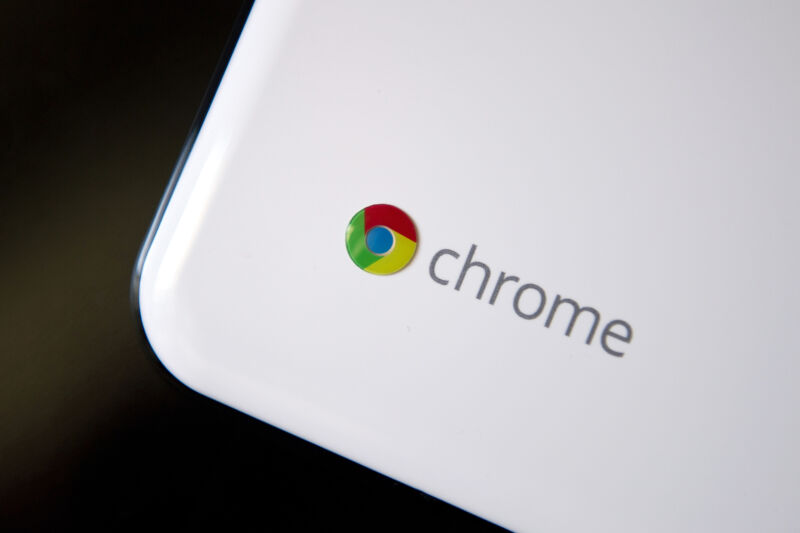Google announced today that it's extending Chromebooks' automatic update support from 8 years to 10 years for devices released from 2019 and later. The move follows increasing criticism from consumers, schools, and advocacy groups around the many Chromebooks in use and on sale with looming death dates.
"All Chromebook platforms will now get regular automatic updates for 10 years," Google's blog post says. Numerous Chromebooks released in 2019 were about to expire next year. Now, no Chromebooks should be expiring within the next two years.
Google's blog continues:
Starting in 2024, if you have Chromebooks that were released from 2021 onwards, you’ll automatically get 10 years of updates. For Chromebooks released before 2021 and already in use, users and IT admins will have the option to extend automatic updates to 10 years from the platform’s release when they receive their last automatic update.
Ten years of support is a notable achievement for Chromebooks, which are often budget-priced. The average Mac receives seven years of macOS updates. Windows, meanwhile, usually sees 10 years of updates, but you can install Windows (and update it) on devices from as long ago as the late 2000s. Chromebooks are unique in individual models having automatic update expiration (AUE) dates and have faced criticism for this for years.
Elizabeth Chamberlain, director of sustainability at iFixit, told Ars Technica:
Basing update and service timelines on first manufacture date instead of last new sale date is a fundamentally flawed model. It allows for the awful possibility that someone might buy a new retail product with expired security support, which should never happen.
Somehow, Google found a way
Google's announcement comes about three years after it announced that Chromebooks' extension of automatic update support from five years to eight. It also follows the US Public Interest Research Group's (PIRG's) "Chromebook Churn" report in April [PDF] pointing out that the average Chromebook only had four years of updates left. At the time, 64 Chromebook models were scheduled to expire by the end of summer 2024.
By including interviews with repair techs, repair activists, and US school districts that helped surge Chromebook sales during the COVID-19 pandemic, PIRG's scathing report detailed concerns with Chromebook AUEs, including views that they were "arbitrary" and "aggressive." PIRG called for Google to promise 10 years of support.
However, Google has previously said that AUE dates aren't easy to change because the dates "depend on many device specific, non-Google hardware and software providers that work with Google to provide the highest level of security and stability support," which is why "older Chrome devices cannot receive updates indefinitely to enable new OS and browser features."
An August Wall Street Journal report quoted ChromeOS product manager Forrest Smith saying AUE dates exist in relation to vendor support for the laptop's components and that the "dates aren't arbitrary."
A Google spokesperson told Ars today that "hundreds of models and thousands of units get tested for every single update, including the test updates, every four weeks, for the entire support lifetime."
"Increasing the time is definitely a sizable engineering effort for Google and our partners," Google's rep said.
But the PIRG's report brought much attention to Chromebook life spans, especially since many public schools and taxpayers spent money on Chromebook fleets to accommodate remote learning during the pandemic. For example, Washington's South Kitsap School District in January said it expected to spend at least $2.8 million to replace 9,483 Chromebooks in 2026. Schools were also concerned about the cost of hauling away unwanted Chromebooks, which lack the resale value of other laptops, like MacBooks.
It's possible that the extension has something to do with Google exploring decoupling ChromeOS from Chrome, which would let people update Chrome (the most important app in any Chromebook), even after the device's AUE date. However, Google hasn't made project Lacros, (Linux And ChRome OS), official.
Regardless of how it happened, PIRG seems appeased with Google's announcement, with Lucas Rockett Gutterman, director of PIRG’s Designed to Last campaign, saying in a statement that the news will make it so that fewer laptops are disposed of.
He added:
Google and other tech companies should continue to innovate ways to commit to a circular economy and stop pressuring us to replace our phones and laptops. The environmental harms of manufacturing and e-waste mean we can’t consume technology at this rate. Longer-lasting Chromebooks are a meaningful step towards an industry with products designed to last.



3175x175(CURRENT).thumb.jpg.b05acc060982b36f5891ba728e6d953c.jpg)
Recommended Comments
There are no comments to display.
Join the conversation
You can post now and register later. If you have an account, sign in now to post with your account.
Note: Your post will require moderator approval before it will be visible.